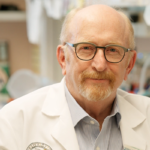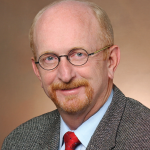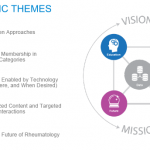“Without the Rheumatology Research Foundation, the field would not be nearly as advanced as it is today, and that is in large part because our Foundation has been able to support high-risk, high-reward ideas, as well as the workforce to carry them out,” says Rheumatology Research Foundation President V. Michael Holers, MD.

Dr. Holers
Now in the second year of his 2021–2023 term as Foundation president, Dr. Holers, a professor of medicine and immunology and the Smyth Professor of Rheumatology at the University of Colorado, Denver, is looking forward to fortifying and expanding those missions in the framework of the Foundation’s new strategic plan.
Growing the Rheumatology Workforce
The 2022–2027 strategic plan has three major focus areas. One is to build the number of rheumatologists and advanced practice providers (APPs), particularly among under-represented groups, according to Dr. Holers.
“While we have a lot more to do, we have made substantial progress in these areas. A good illustration of that progress is the Foundation’s collection of innovative grant mechanisms that open up funding to support nurse practitioners and other APPs. Indeed, we have found that APPs who get this support are more likely to remain with their rheumatology practices, and retention is a significant goal,” he says.
In addition, the Foundation is taking steps to recruit early career medical students into the field. “This is a critical emphasis. We have a wide variety of funding mechanisms in place to interest medical students in rheumatology and to support training in rheumatology. And we’re trying to actually move those efforts earlier—into college, possibly high school—to expose students to the excitement of the field.” (More about the extensive range of student and early career grants is available here: https://www.rheumresearch.org/funding-opportunities.)
This priority on the workforce is designed not only to lessen demands on already practicing rheumatologists, but also to widen access to patient care. For example, Dr. Holers notes that patients in rural areas often have to drive tens and sometimes hundreds of miles to visit a rheumatology specialist.
“Improved patient access and outcomes can happen with increased numbers of providers,” says Dr. Holers. “And along those lines of improving access, we are working to advance telehealth. In fact, telehealth is one of the new research areas we are pursuing through our Rheum2Collaborate telemedicine partnership.” (Note: The partnership is funded by AbbVie and UCB with additional support from Bristol Myers Squibb.)



